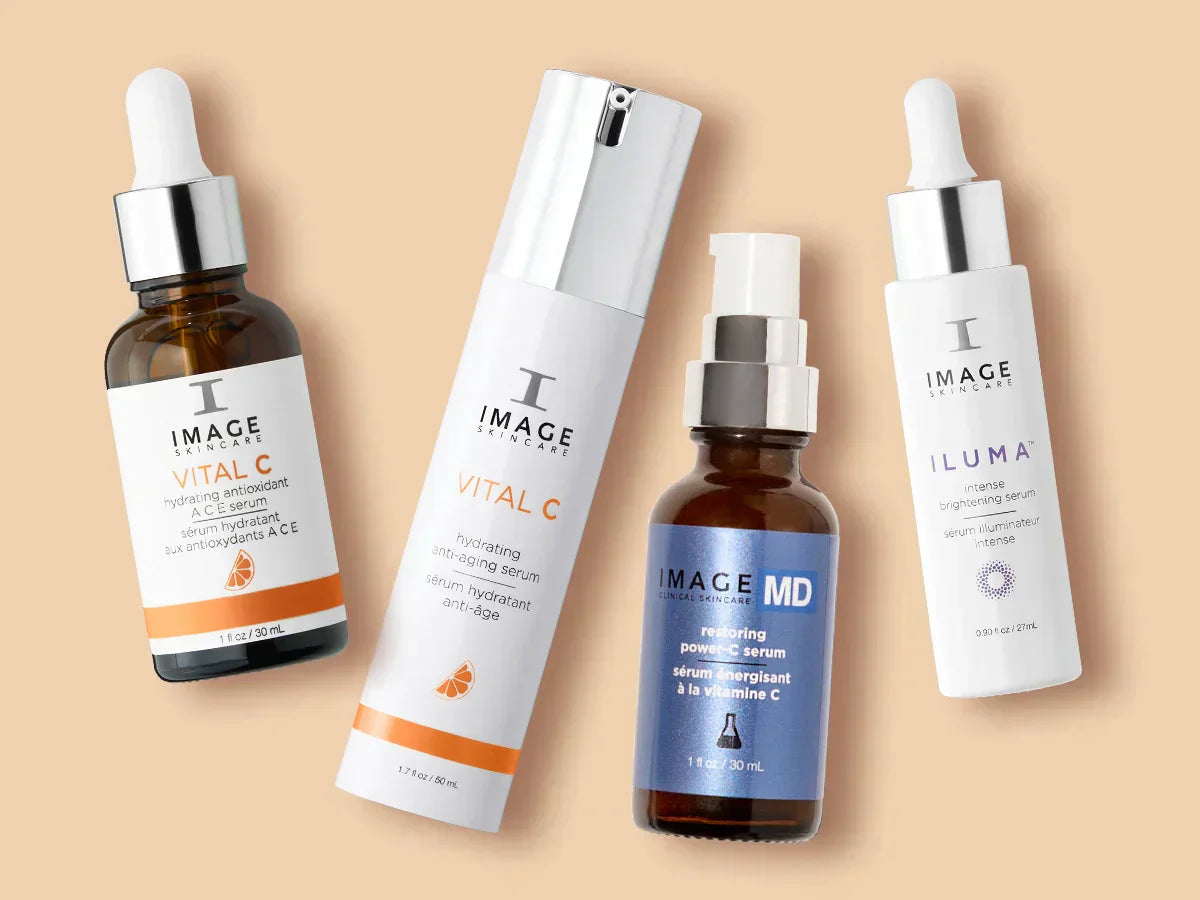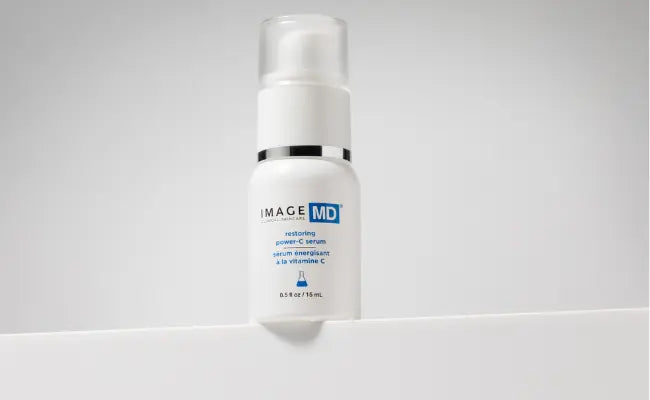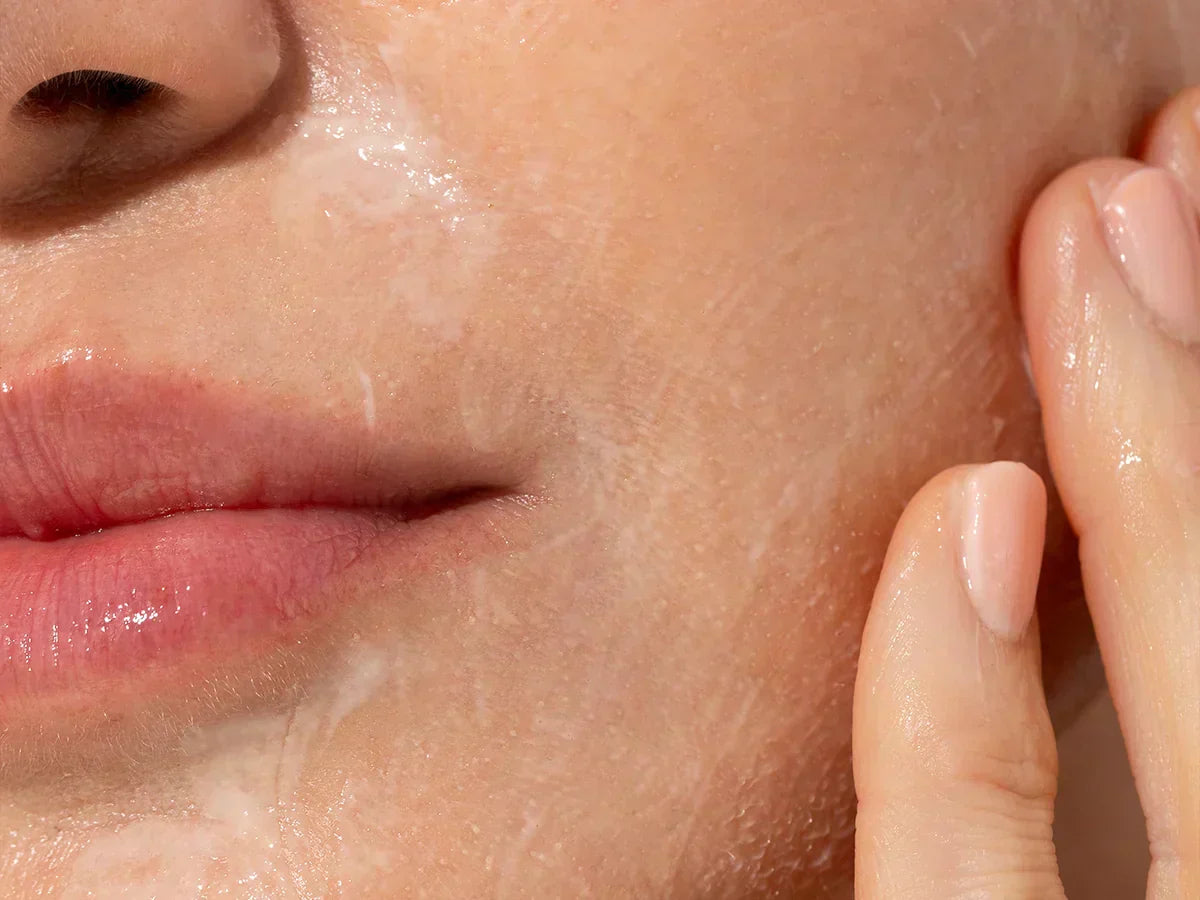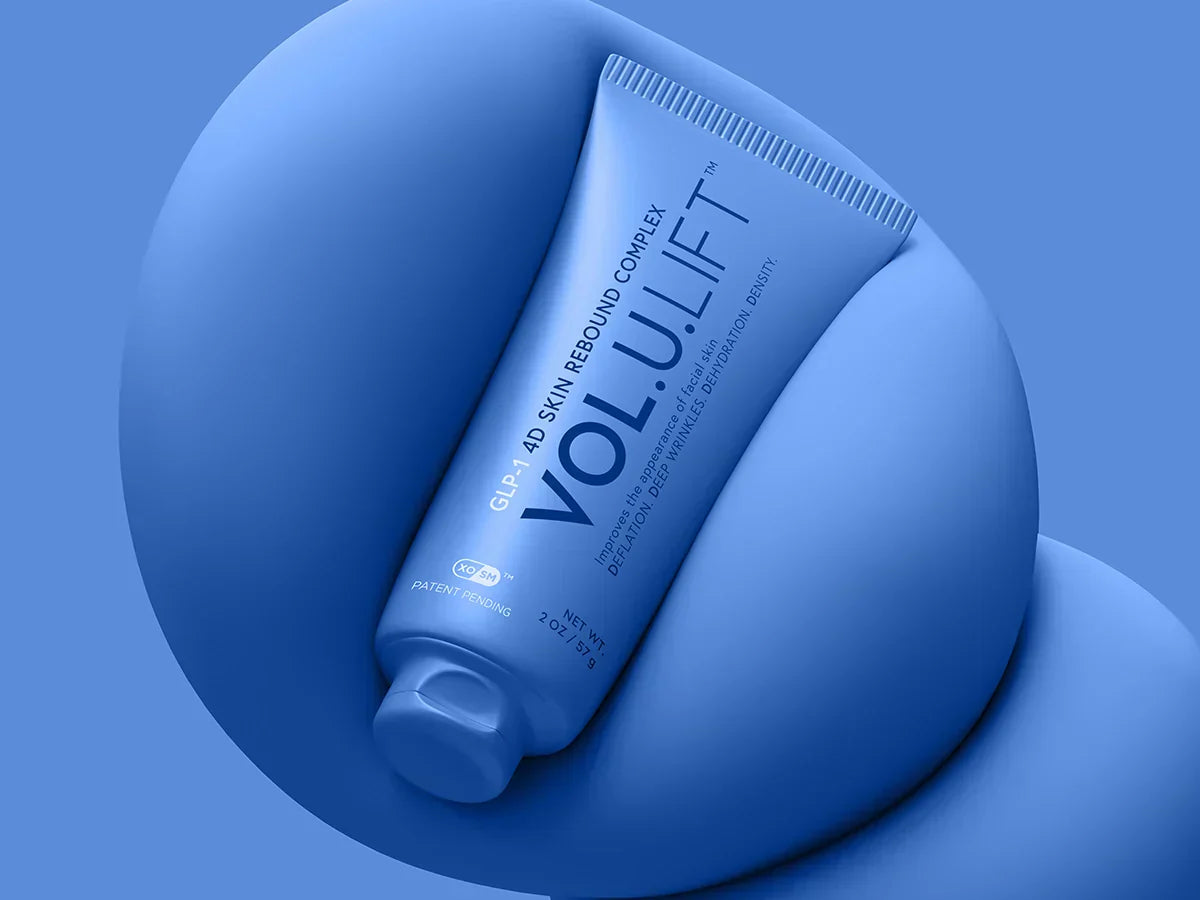
Why Is Vitamin C Serum Important for Skin Health?
When it comes to skincare, few ingredients are as powerful—or as essential as vitamin C. Vitamin C is a clinically proven antioxidant that helps defend against environmental stressors, improve skin tone, and enhance radiance. Whether you’re looking to brighten dull skin, reduce signs of aging, or strengthen your skin’s moisture barrier, incorporating skincare with vitamin C into your routine can make a significant difference.

Vitamin C Skin Benefits: What Does It Do for Your Skin?
1. Reduces the Appearance of Fine Lines and Wrinkles
Vitamin C helps support collagen production, which is essential for maintaining firm, youthful skin. Studies show that daily application of vitamin C can visibly soften fine lines and wrinkles over time.
Try: IMAGE MD restoring power C serum – With a 20% tetrahexyldecyl ascorbate formula, this doctor-developed serum delivers intense brightening, firming, and environmental protection while helping to reduce fine lines and pigmentation.


2. Helps Brighten and Even Skin Tone
One of the standout vitamin C serum benefits is its ability to inhibit melanin production, reducing the appearance of dark spots, discoloration, and post-breakout marks for a more even skin tone.
Try: VITAL C hydrating anti-aging serum – Our #1 bestselling vitamin C serum for over two decades, this award-winning formula features multiple forms of stabilized vitamin C to visibly brighten, improve elasticity, and boost hydration.

3. Enhances Skin’s Natural Hydration
Vitamin C helps prevent water loss from the skin, ensuring it stays hydrated, plump, and dewy.
Try: VITAL C hydrating antioxidant A C E serum – This daily multivitamin for the skin is infused with vitamins A, C, and E, along with amino acids and green tea extract, to deeply hydrate, smooth, and protect against environmental stressors.

4. Defends Against Environmental Damage
Sun exposure and pollution can lead to premature aging and dullness, but vitamin C neutralizes oxidative stress to help keep skin looking healthy and radiant.
Try: VITAL C hydrating anti-aging serum – Packed with powerful antioxidants, this serum combats free radicals while enhancing brightness and protecting against environmental aggressors.

When to Use Vitamin C Serum for Best Results
For optimal benefits, apply vitamin C serum in the morning after cleansing and before moisturizer and SPF. This helps shield skin from daily environmental stressors while maximizing glow and hydration.
How to Use Vitamin C Serum in Your Routine:
- Cleanse with your favorite IMAGE Skincare cleanser
- Apply 3-5 drops of a vitamin C serum to dry skin
- Lock in hydration with VITAL C moisturizers
- Protect with a broad-spectrum SPF, like DAILY PREVENTION™ sunscreen

Looking for the Best Vitamin C Serum for You?
Explore our recommended vitamin C serums and find the perfect fit for your skin’s needs.











